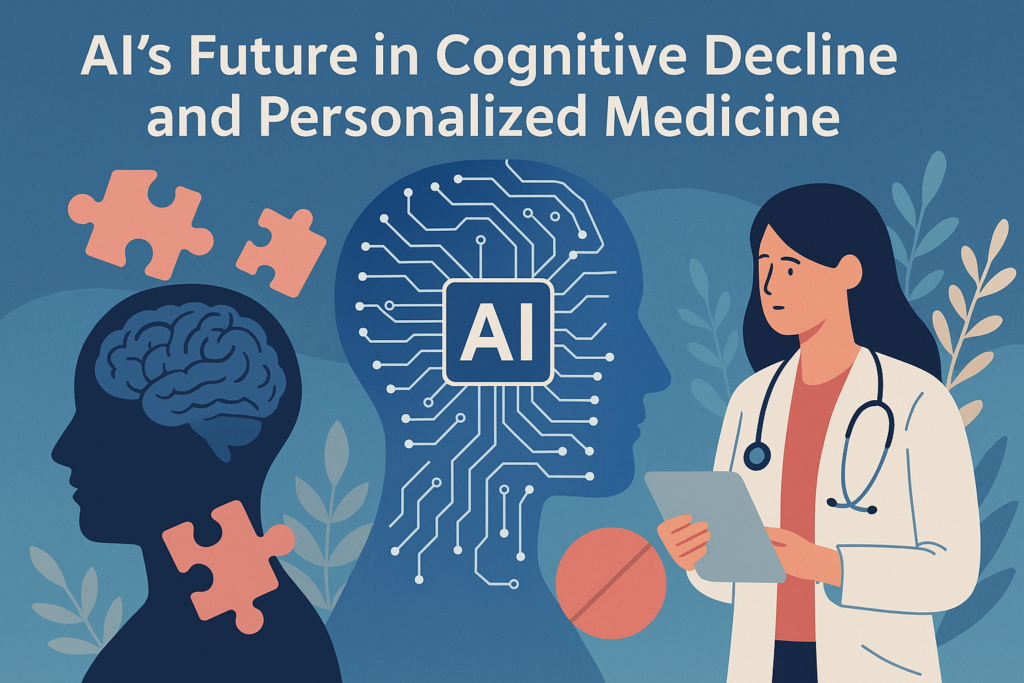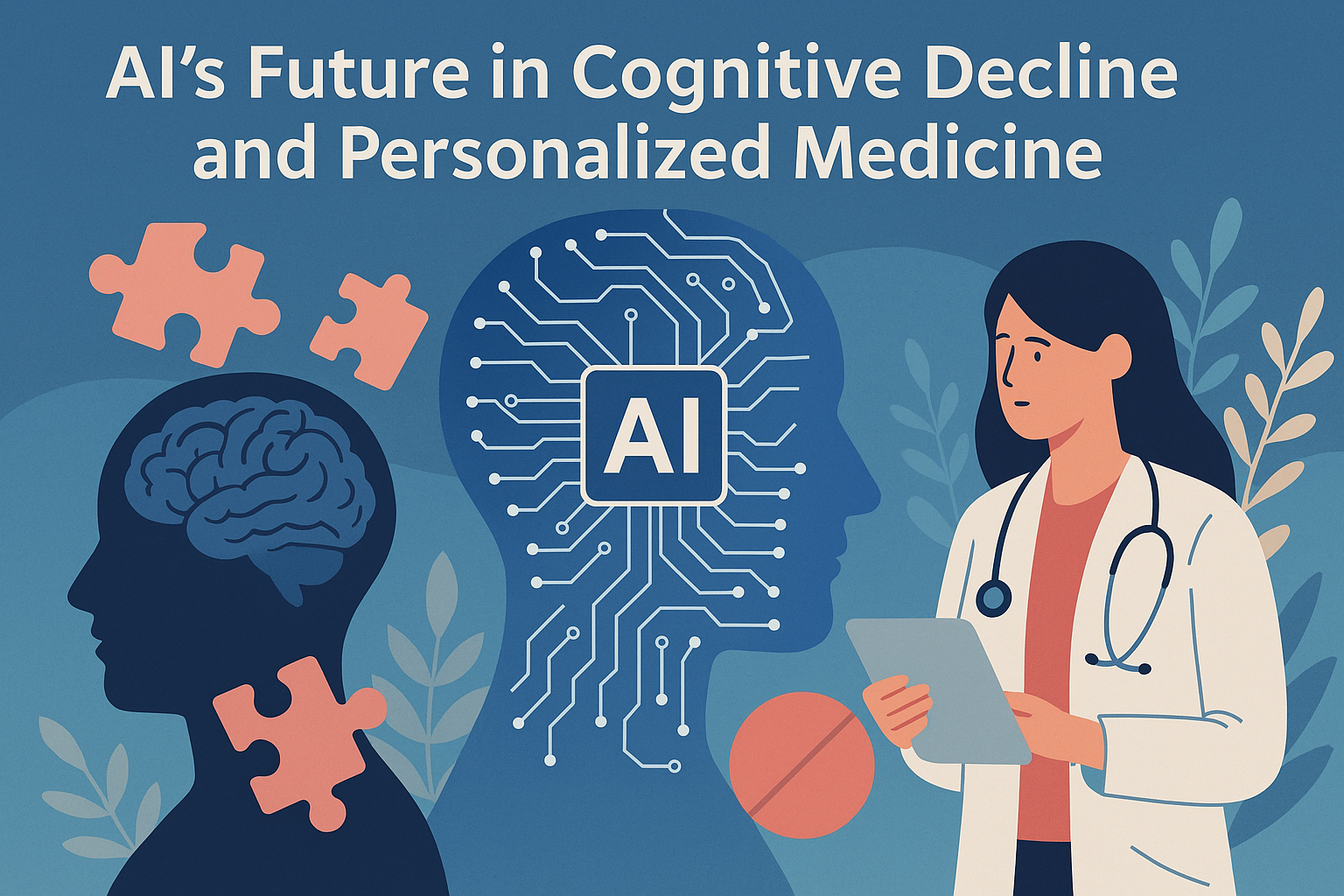Introduction
In the rapidly evolving landscape of healthcare, Artificial Intelligence (AI) is emerging as a transformative force, particularly in the realms of cognitive decline research and personalized medicine. As we approach AAN 2025, the integration of AI technologies promises to revolutionize how we understand, diagnose, and treat cognitive impairments. This article delves into the promising role of AI in these critical areas, highlighting advancements, applications, and future prospects.
AI in Cognitive Decline Research
Early Detection and Diagnosis
One of the most significant challenges in addressing cognitive decline, including conditions like Alzheimer’s and Parkinson’s, is early detection. AI-powered tools are at the forefront of tackling this issue by:
For instance, machine learning algorithms can sift through vast amounts of imaging data to pinpoint changes in brain structure and function that precede clinical symptoms, enabling timely interventions.
Personalized Treatment Plans
AI’s capability to process and interpret large datasets also facilitates the development of personalized treatment strategies. By considering an individual’s genetic makeup, lifestyle factors, and medical history, AI can:
This personalized approach not only enhances treatment efficacy but also improves patient outcomes and quality of life.
Enhancing Research and Drug Development
AI accelerates the pace of cognitive decline research by:
By reducing the time and cost associated with traditional research methods, AI enables more rapid advancements in understanding and combating cognitive decline.
AI in Personalized Medicine
Precision Healthcare
Personalized medicine aims to tailor healthcare to individual patients based on their unique characteristics. AI enhances this approach by:
This precision ensures that patients receive the most appropriate and effective treatments, minimizing trial and error and enhancing overall healthcare outcomes.
Genomic Analysis and Biomarker Discovery
AI plays a pivotal role in analyzing genomic data to uncover biomarkers associated with various diseases. This involves:
By leveraging AI in genomic analysis, personalized medicine can be more accurately aligned with an individual’s genetic predispositions, leading to more effective and tailored interventions.
Patient Monitoring and Management
Continuous patient monitoring is essential for managing chronic conditions and ensuring timely interventions. AI enhances patient management by:
This real-time monitoring facilitates early detection of complications, ensures adherence to treatment plans, and improves overall patient engagement and outcomes.
Challenges and Ethical Considerations
While AI offers immense potential in cognitive decline research and personalized medicine, several challenges and ethical considerations must be addressed:
Data Privacy and Security
The integration of AI in healthcare involves handling sensitive patient data. Ensuring data privacy and security is paramount to protect against breaches and misuse. Implementing robust encryption, access controls, and compliance with regulations like GDPR and HIPAA is essential.
Bias and Fairness
AI algorithms can inadvertently perpetuate biases present in the training data, leading to inequitable healthcare outcomes. It is crucial to develop and train AI models on diverse and representative datasets to minimize bias and ensure fairness in healthcare delivery.
Transparency and Explainability
AI systems, particularly those based on complex machine learning models, can be opaque in their decision-making processes. Enhancing the transparency and explainability of AI algorithms is necessary to build trust among healthcare providers and patients and to facilitate informed decision-making.
Regulatory and Ethical Frameworks
Establishing comprehensive regulatory and ethical frameworks is vital to guide the responsible development and deployment of AI in healthcare. This includes setting standards for AI validation, ensuring accountability, and addressing ethical dilemmas related to autonomy, consent, and data ownership.
Future Prospects
As we look towards AAN 2025, the future of AI in cognitive decline research and personalized medicine is promising. Anticipated advancements include:
Integration with Emerging Technologies
Combining AI with other emerging technologies such as Internet of Things (IoT), Blockchain, and Augmented Reality (AR) can further enhance healthcare delivery. For example, integrating AI with IoT-enabled devices can improve patient monitoring, while blockchain can ensure secure and transparent data sharing.
Advancements in AI Algorithms
Continued improvements in AI algorithms, including the development of deep learning and reinforcement learning models, will enhance the accuracy and efficiency of diagnostic tools, personalized treatment plans, and predictive analytics.
Collaborative Research Initiatives
Collaborative efforts among academia, industry, and healthcare institutions will drive innovation and accelerate the translation of AI research into clinical practice. Sharing data, resources, and expertise will be crucial in overcoming challenges and maximizing the benefits of AI in healthcare.
Education and Training
Training healthcare professionals to effectively utilize AI tools is essential for their successful integration into clinical practice. Educational programs focusing on AI literacy, data interpretation, and ethical considerations will empower healthcare providers to leverage AI technologies effectively.
Conclusion
AI stands at the cusp of transforming cognitive decline research and personalized medicine, offering unprecedented opportunities to enhance early detection, develop tailored treatments, and improve patient outcomes. As we advance towards AAN 2025, addressing the challenges and embracing the ethical use of AI will be crucial in realizing its full potential. By fostering collaboration, ensuring data integrity, and prioritizing patient-centric approaches, AI can significantly contribute to the future of healthcare, paving the way for a healthier and more personalized medical landscape.


